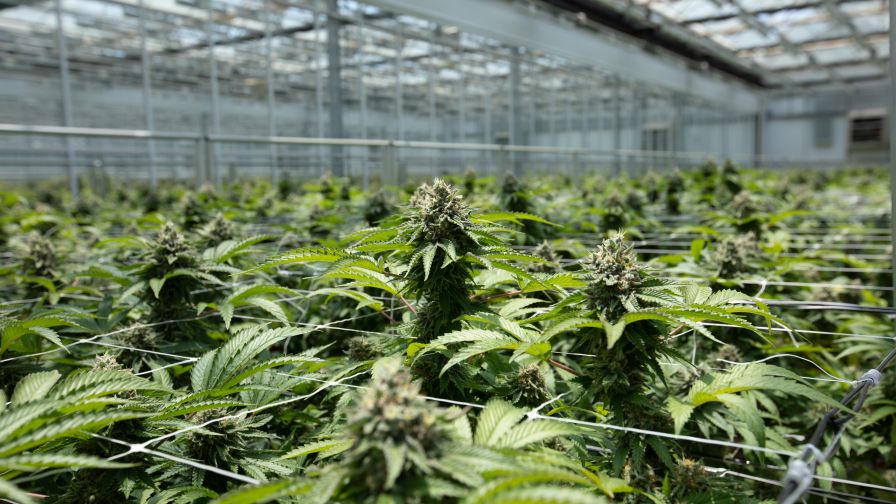Grower-Research Partnership to Focus on Crop Steering in Cannabis

Photo: Harborside
Harborside Inc., a California-focused, vertically integrated cannabis operation, has entered into a strategic research agreement with Utah State University to conduct a study led by plant physiologist Dr. Bruce Bugbee on cannabis crop steering. This complex cultivation approach manipulates all environmental influences to increase crop yield, improve product quality, and save resources.
By adjusting irrigation, lighting, and climate throughout the grow cycle, proper crop steering gives cannabis growers more control over the performance of their harvest. Bugbee’s research will study all influencing factors to plant growth including light intensity, CO2 levels, ambient temperatures, and substrate moisture levels which affect the yield, cannabinoid potency, and terpene composition of cannabis plants.
Harborside’s Vice President of Production, Travis Higginbotham, will work closely with Bugbee to identify relevant and practical crop steering techniques while contributing to the science of cannabis. The research will be conducted in Bugbee’s Plant Physiology Laboratory at Utah State University.
“Harborside is committed to creating a cannabis industry that can meet growing consumer demand for the product by finding ways to increase yields without compromising quality,” Higginbotham says. “We are eager to work alongside Dr. Bugbee to increase the collective scientific understanding of growing cannabis and discovering new production practices that maximize the performance of this crop.”
Bugbee notes that from a practical perspective, the study will not only impact the scientific understanding of cannabis, but also present relevant practices that can be implemented in commercial cannabis production to potentially boost sustainability and help the industry scale efficiently.
“We have used the crop steering approach in collaborative research with NASA to improve the yield of food crops in highly controlled environments, and are now applying our insight to cannabis,” he says.
Bugbee is the founder and President of Apogee Instruments, Inc. and Professor of Crop Physiology at Utah State University. He is a Fellow of the American Society of Agronomy and America Society of Horticultural Science and has authored more than 137 peer-reviewed studies in his field.
Greenhouse Grower recently caught up with Higginbotham to learn more about the role that Harborside will plan in the partnership.
Greenhouse Grower (GG): What was the main reason for this research partnership?
Travis Higginbotham: The cannabis industry is moving at a fast pace, but with that, we don’t really see the industry changing its growing practices at the same rate to compensate for the changes in market value of the finished product. In other markets, production tends to move at the same pace as the overall market. Within cannabis, it seems like the market moves quickly, but production doesn’t always keep up. From what we’ve learned in other markets, you need to understand both the science of the crop, and how you can grow it in order to achieve consistent margins or possibly higher margins with higher volume. The cannabis market is young and productive, and it has high value compared to other crops. Soon, however, we’ll be a mature market with even more customer scrutiny on the quality of the product, demand, and competition, so we need to adopt more efficient practices. I know Dr. Bugbee very well, and the industry is lucky to be working with him. Now that he can use hemp. There’s no one better way to contribute than helping him ID research projects that can be relevant for the market, and I’m proud to be at a company that has a goal of making our production more efficient, and making this information available to the industry. We are excited to be among the first to implement new practices that come from Dr. Bugbee’s research.
GG: How will this research help the industry?
Higginbotham: Universities can be focused on building the science behind the plant, but it’s not always practical in a real-world environment. That’s why, working together, we can focus on crop steering in a way that allows us to come up with production practices that can be directly implemented with immediate success.










